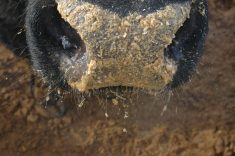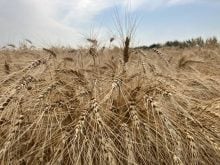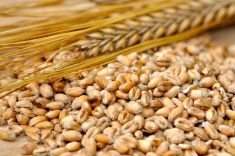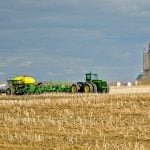One of the world’s biggest beer companies is moving to expand its brewing capacity on Canadian soil with a $144 million deal for Kitchener-based Waterloo Brewing.
Carlsberg Group on Wednesday announced an all-cash deal worth $4 per share for all shares of Waterloo Brewing, which bills itself as the largest Canadian-owned brewery in Ontario and a pioneer of the current “craft brewing renaissance” in Canada.
The deal still requires court approval — and approval from TSX-traded Waterloo’s shareholders, although Carlsberg has already signed up Waterloo company directors and officers holding a combined stake of about 39 per cent, with “irrevocable” support and voting agreements.
Read Also

JBS profit falls amid still-challenging US market environment
JBS, the world’s largest meat company, reported a net profit fall in the third quarter in spite of a rise in global net sales amid a still-challenging beef market environment in the U.S., according to an earnings statement on Thursday.
A committee of Waterloo independent directors is also recommending the remaining shareholders vote in favour of the deal, on which the two companies expect to close early in the first half of the new year.
In business since 1984, starting as Brick Brewing and rebranding in 2019, Waterloo Brewing produces the Waterloo line of premium craft beers and a “value” brand, Laker.
It also holds the Canadian rights to Seagram Coolers and the LandShark and Margaritaville beverage lines, and already has been producing Somersby cider in Canada on Copenhagen-based Carlsberg’s behalf since 2020.
“One of the priorities of our SAIL’27 strategy is to grow our business in attractive markets where we are small today, such as Canada,” Carlsberg CEO Cees ‘t Hart said in a separate release Thursday. Buying Waterloo Brewing, he said, “significantly improves our growth prospects in the Canadian market.”
“This exciting opportunity will scale our business in Canada. The brand portfolios are complementary. Local sourcing will secure long-term robustness of supply, and increase commercial flexibility and speed to market for innovations, step-changing the way we operate,” Carlsberg Canada managing director Anders Rud Jørgensen said in the same release.
Waterloo Brewing’s portfolio of “long-standing co-packing relationships will benefit from these combined operations,” he added.
“We’ve enjoyed a close relationship with Carlsberg and are excited about becoming part of one of the largest brewing companies in the world,” Waterloo Brewing CEO George Croft said in Wednesday’s release, adding the the board “is confident that joining Carlsberg is the best long-term solution for our employees, partners, customers, consumers and community.”
Waterloo on Wednesday also announced results for its third quarter ending Oct. 30, reporting declines in both net revenue and gross profit in what Croft described in a separate release as “a challenging year for the industry.”
Waterloo said it’s “continuing to see consumers trade-down as a result of ongoing inflationary pressures,” which has led to sales growth for the Laker brand but has “negatively impacted the company’s premium beer brands and ready-to-drink products, which is putting pressure on gross margin.”
Waterloo has since raised the price on its single-serve 473-millilitre Laker cans, a change it said is “consistent with the balance of the industry and will have a significant and positive impact on gross margin in the fourth quarter.”
The company also reported renewals with “strategic” co-manufacturing partners, which it said will result in about $18 million of combined revenue over the extended terms of those contracts.
For its last full fiscal year ending Jan. 31, 2022, Waterloo had booked $5.803 million in net income on $180.825 million in gross revenue, up from $3 million on $156.8 million in the previous fiscal year. — Glacier FarmMedia Network














